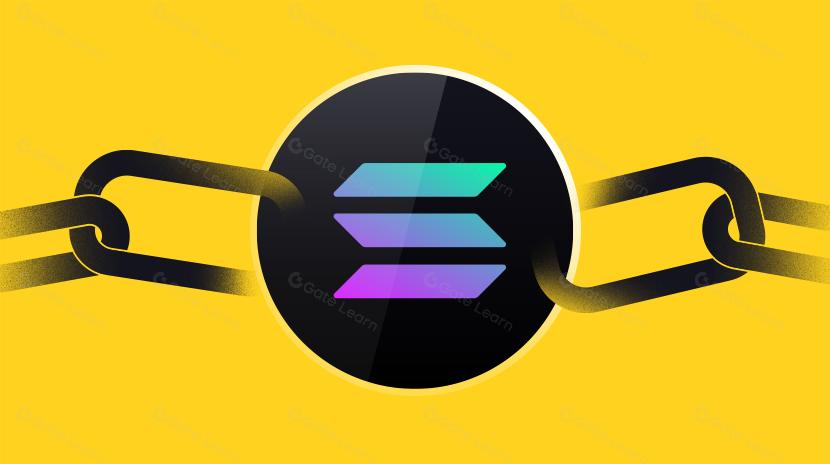Buy the rumor series: Expectations of Improved Regulatory Environment Heat Up, Which Cryptocurrency Benefits the Most?
Abstract: We are familiar with the saying, “Buy the rumor, sell the news.” Before the October elections, my article “DOGE’s New Value Cycle: Political Traffic Potential and Musk’s ‘Government Efficiency Department’ (D.O.G.E) Political Career” received a positive response and met expectations, resulting in substantial investment returns. I am grateful for everyone’s encouragement and support. Personally, I believe that during the transitional period before Trump officially takes office, there will be many similar trading opportunities. Therefore, I’ve decided to launch a series of articles called “Buy the rumor series” to explore and analyze the current market trends and identify potential trading opportunities. \
Last week, an interesting phenomenon caught attention: as Trump made a strong return, the market began speculating about the potential resignation of SEC Chairman Gary Gensler. Many mainstream media outlets have been publishing analysis on potential successors. In this article, we will analyze which cryptocurrency stands to benefit the most as expectations of an improved regulatory environment rise. The conclusion is as follows: I believe the ETH Staking sector will see the most direct gains, and Lido, as a leading project, may also overcome its current price predicament.
Reviewing the Regulatory Challenges Faced by Lido: The Samuels v. Lido DAO Lawsuit
First, let’s provide some basic information. Lido is a leading project in the ETH Staking sector. By offering non-custodial technical services, it helps users participate in Ethereum PoS, earn rewards, and lowers the technical barrier and the 32 ETH funding threshold required for Ethereum Native Staking. The project has raised $170 million through three rounds of fundraising. Since its launch in 2022, Lido has maintained a market share of around 30% due to its first-mover advantage. As of now, according to Dune data, Lido holds a 27% market share with no significant decline, indicating that Lido’s business demand remains strong.

The reason for Lido’s current price downturn can be traced back to the end of 2023, when the price of its governance token, LDO, reached an all-time high, and its market capitalization peaked at $4 billion. However, a lawsuit changed the entire price trend: the Samuels v. Lido DAO case, case number 3:23-cv-06492. On December 17, 2023, an individual named Andrew Samuels filed a lawsuit against Lido DAO in the U.S. District Court for the Northern District of California. The core of the lawsuit accused the defendant, Lido DAO, and its venture capital partners, of unlawfully selling LDO tokens to the public without proper registration, violating the Securities Act of 1933.
In addition, Lido DAO’s business model, which involved pooling user Ethereum assets for staking, created a highly profitable model but failed to register its LDO tokens with the U.S. Securities and Exchange Commission (SEC) as required. Plaintiff Andrew Samuels and other investors, who bought LDO tokens believing in the potential of the business model, ultimately suffered financial losses and are seeking legal compensation.
This case not only involves Lido DAO but also includes accusations against its major investors, such as AH Capital Management LLC, Dragonfly Digital Management LLC, Paradigm Operations LP, and Robot Ventures LP. According to case updates, these institutions received court subpoenas in January 2024, at a time when the price of LDO was at its peak. Since then, the legal process has primarily been confined to the lawyers of the investment firms and Andrew Samuels, and as a result, the broader impact has not yet spread.

It wasn’t until the first motion hearing on March 28, 2024, that the court’s decision was finalized on April 10, 2024. After modifying some related terms, the case was officially accepted for adjudication.

On May 28, 2024, Andrew Samuels’ legal team unilaterally announced a motion to declare Lido DAO in default. The reason for this move was that Lido DAO argued it did not operate as a company and therefore ignored the lawsuit. If declared in default, Lido could face unfavorable judgment outcomes, such as the inability to defend itself. Based on previous cases, like the Ooki DAO case, the outcome for the party in default was generally negative. On June 27, the court ruled in favor of this motion and required Lido DAO to respond within 14 days. As a result, Lido DAO had to appoint a defense attorney, Dolphin CL, LLC, based in Nevada, through a community proposal, and allocated 200,000 DAI for related legal fees. At this point, the case became widely known within the community. After several rounds of arguments between the parties, the case seemed to enter a cooling-off period after September.

At the same time, another case had a substantial impact on Lido: the SEC’s case against Consensys Software Inc., case number 24-civ-04578, filed on June 28, 2024. Notably, this occurred the day after the ruling in the Lido DAO case, where Lido had been fully notified of the lawsuit’s judgment. In this case, the SEC accused Consensys Software Inc. of engaging in unregistered securities issuance and sales through its MetaMask Staking service and operating as an unregistered broker through both MetaMask Staking and another service called MetaMask Swaps.
According to the SEC’s complaint, since January 2023, Consensys had facilitated the sale of tens of thousands of unregistered securities on behalf of liquidity staking providers Lido and Rocket Pool. These two companies create and issue liquid staking tokens (stETH and rETH) in exchange for staked assets. While staking tokens are typically locked and cannot be traded or used during staking, liquid staking tokens, as the name suggests, can be freely bought and sold. Investors in these staking plans provide funds to Lido and Rocket Pool in exchange for these liquid tokens. The SEC’s complaint alleges that Consensys was involved in the distribution of staking plan tokens, thus engaging in unregistered securities issuance and sales and acting as an unregistered broker in these transactions.
In this lawsuit, the SEC explicitly described the stETH token issued to Lido participants as a security. This marked the beginning of a challenging period for Lido under increasing regulatory pressure. The reason for detailing the case’s timeline is to highlight how it correlates with Lido’s price movement. In other words, the core factor suppressing LDO’s price was the lawsuit impact driven by increasing regulatory pressure, which triggered risk-averse behavior from institutional and retail investors. If the judgment were unfavorable, it could result in significant fines for Lido DAO, which would likely have a substantial negative impact on the price of LDO.

Is StETH a Security, and Why is Lido’s Future Development the Most Worth Watching?
Based on the analysis above, we can identify that the current decline in LDO’s price is not due to business underperformance, but rather the uncertainty caused by regulatory pressure. As we know, the core issue in the two cases mentioned above is determining whether stETH is a security.
Typically, determining whether an asset can be classified as a security requires the application of the “Howey Test.” To briefly explain, the Howey Test is a standard used under U.S. law to assess whether a particular transaction or instrument constitutes a security. It originates from the 1946 U.S. Supreme Court ruling in the SEC v. W.J. Howey Co. case. This test is crucial for defining securities, especially in the cryptocurrency and blockchain sectors, and is frequently used to evaluate whether tokens or other digital assets are subject to U.S. securities laws.
- The Howey Test is primarily based on the following four criteria:
- Investment of Money: Whether money or other forms of value are involved in the investment.
- Common Enterprise: Whether the investment is made into a common enterprise or project.
- Expectation of Profit: Whether the investors have a reasonable expectation of profits derived from the efforts of others.
- Efforts of Others: Whether the profit is primarily dependent on the efforts of the project developers or third parties managing and operating the enterprise.
If a transaction or instrument meets all of the above conditions, it may be classified as a security and subject to regulation by the U.S. Securities and Exchange Commission (SEC). In the current regulatory environment, where cryptocurrency faces increasing scrutiny, stETH has been considered a security by the SEC. However, the cryptocurrency community holds an opposing view. For example, Coinbase believes that ETH Staking does not meet the four criteria of the Howey Test and therefore should not be regarded as a securities transaction.
- No Investment of Money: During the staking process, users retain full ownership of their assets at all times and do not hand over control of their funds to a third party, so there is no investment behavior.
- No Common Enterprise: The staking process is carried out through a decentralized network and smart contracts, and the service provider is not a business operating in conjunction with the user.
- No Reasonable Expectation of Profit: Staking rewards are the earnings of blockchain validators, similar to wage compensation, rather than the expected returns from an investment.
- Not Dependent on the Efforts of Others: The institutions providing staking services only operate public software and computing resources to perform validation, which is technical support rather than management. The rewards are not based on their management efforts.
From this, we can see that there is still room for discussion regarding whether ETH Staking-related assets will be classified as securities, as it is largely influenced by the SEC’s subjective judgment.
To summarize why I believe Lido’s future development is the most worth watching:
- The core factor suppressing the price is regulatory pressure, which is highly influenced by subjective factors. Currently, the price is at a technical low point.
- ETH has already been defined as a commodity, which gives it more room for discussion compared to other fields, such as SOL.
- The ETH ETF has already been approved, and the top-tier resources mobilized for the ETF sales will certainly provide assistance. To expand on this, there have been rumors circulating that the current inflow of funds into ETH ETFs is weaker than that of BTC ETFs. The reason for this lies in the difference between the two. For most traditional funds, BTC is the standard for the cryptocurrency market and is relatively easier to understand. On the other hand, the appeal of the ETH ETF is not as strong. If ETH ETFs could offer indirect staking rewards to buyers, it would significantly increase their attractiveness.
- The legal costs associated with resolving related lawsuits are relatively low. In the Samuels v. Lido DAO case, the plaintiff is an individual, not the SEC. Therefore, the legal costs involved in dismissing the case are smaller compared to those in a direct SEC lawsuit, and the impact is also relatively limited.
In conclusion, I believe that during this window period, with the potential for changes in the regulatory environment, Lido’s future development is worth watching.
Disclaimer:
- This article is reproduced from [ Mario looks at Web3]. The copyright belongs to the original author [@Web3Mario]. If there are objections to this reprint, please contact the Gate Learn team, and they will handle it promptly.
- Liability Disclaimer: The views and opinions expressed in this article are solely those of the author and do not constitute investment advice.
- The Gate Learn team translated the article into other languages. Copying, distributing, or plagiarizing the translated articles is prohibited unless mentioned.
Related Articles

The Future of Cross-Chain Bridges: Full-Chain Interoperability Becomes Inevitable, Liquidity Bridges Will Decline

Solana Need L2s And Appchains?

Sui: How are users leveraging its speed, security, & scalability?

Navigating the Zero Knowledge Landscape

What is Tronscan and How Can You Use it in 2025?
